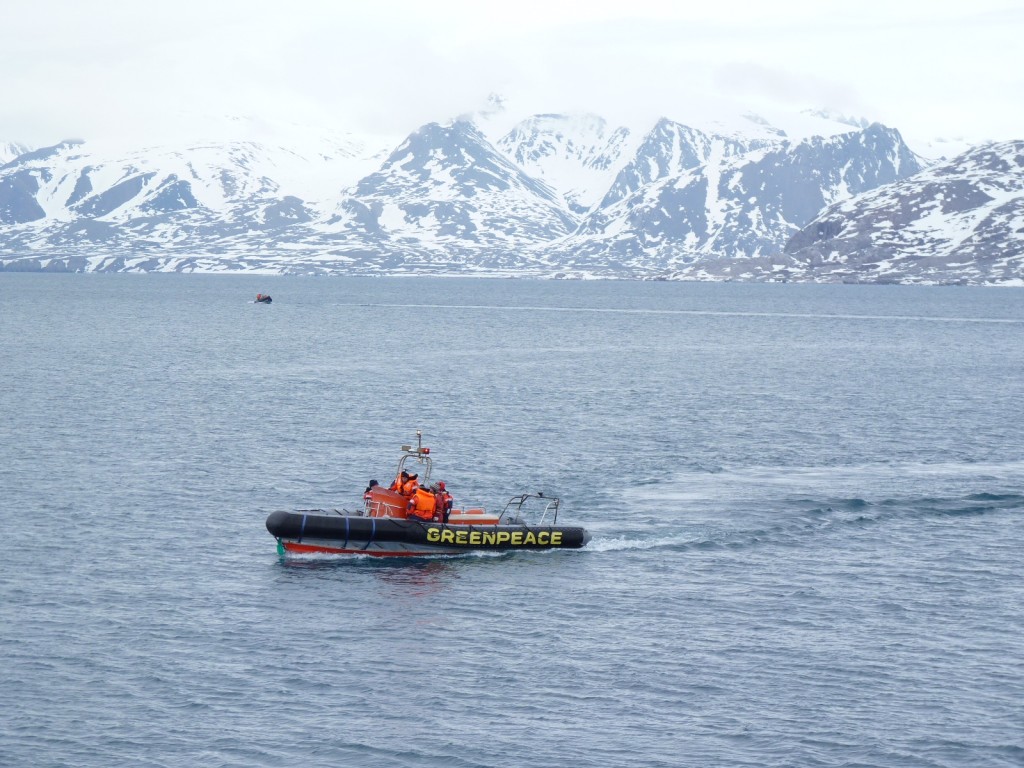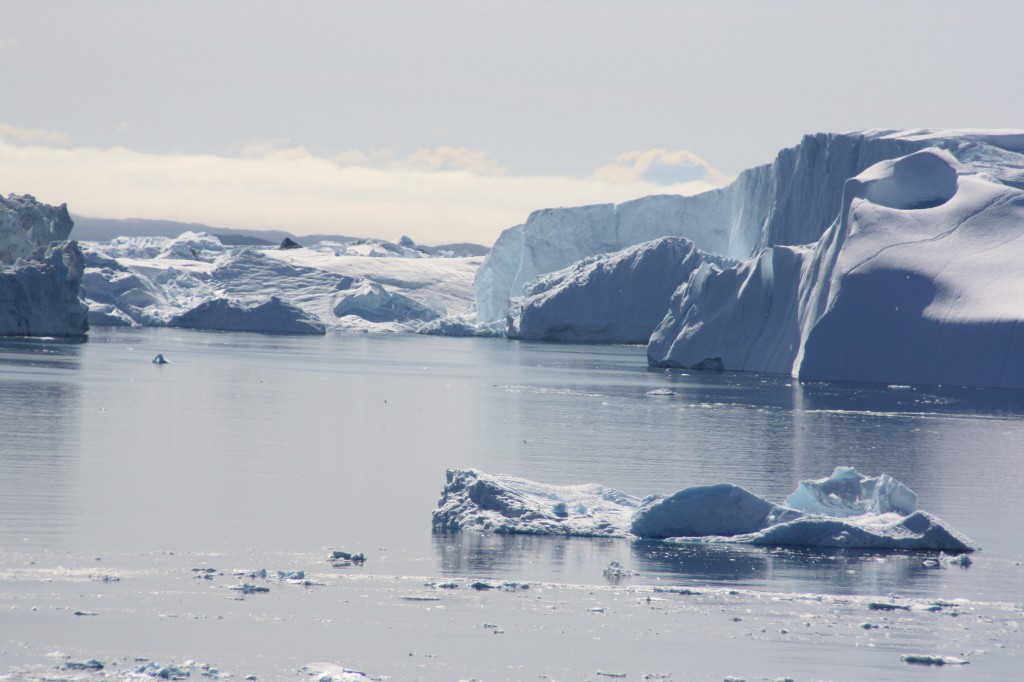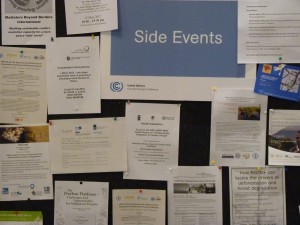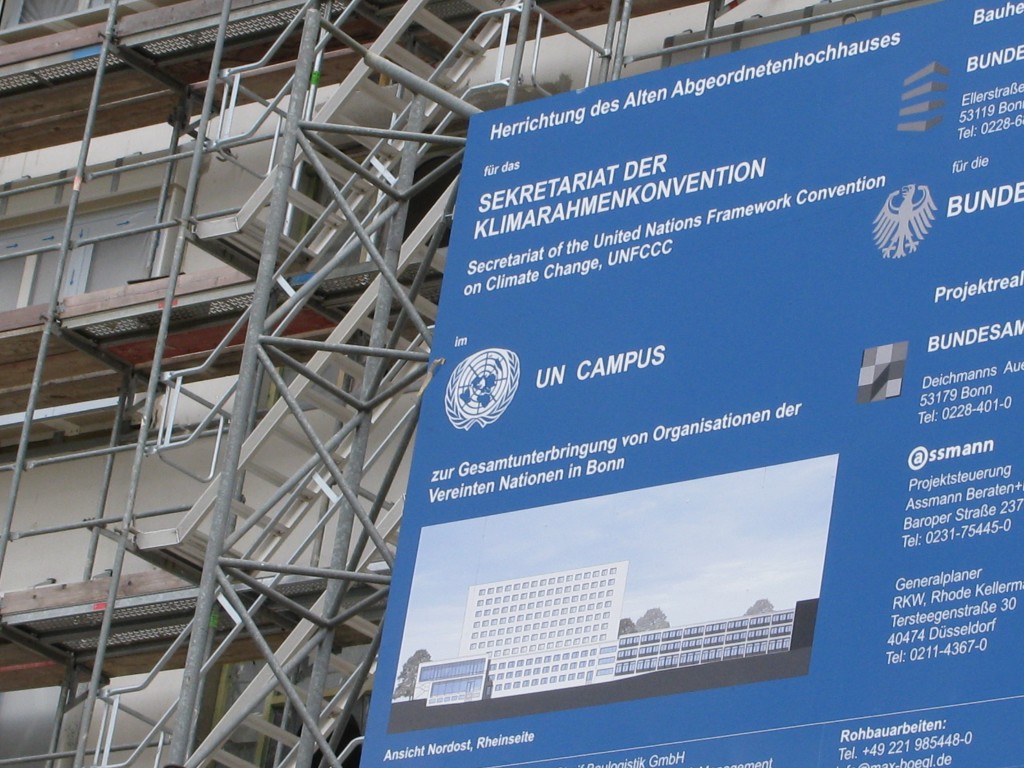Search Results for Tag: UN talks
Rio 20 years on – and where’s the climate now?

Greenpeace is regularly out and about in the Arctic, here off Spitzbergen. No wonder the activists are disappointed with Rio so far
I’ve just been working on an article on the record high CO2 concentration measured in Arctic Alaska in May. And it really brings it home to me that since the famous Earth summit in Rio in 1992 set the alarm bells ringing and the wheels in motion to tackle climate change – we have not really achieved very much. Now I am generally an optimistic person, but given that CO2 emissions were up again in 2011, the UN climate secretariat is still struggling to get countries on board for a Kyoto follow-up agreement, the USA still resists any binding targets and China and the other emerging countries are understandably unwilling to compromise their development to start solving a problem we industrialised countries caused – it is hard to work up enthusiasm for the Rio meeting. Copenhagen showed us all what can come of having expectations that are too high. Basically, the draft declaration from the meeting (sometimes I think it makes a bit of a farce of the huge meetings themselves that the draft has to be ready beforehand, but I understand the political and economic realities behind this) has already polarised response: on the one hand, the politicians who (have to?) say they would have liked more but we are lucky to get even this meagre document, on the other the ngos and activists who have expressed huge disappointment or even disgust. Let me give you a short quote from Kumi Naidoo’s blog, he’s executive director of Greenpeace International:
“The Future we Want is nowhere to be found in the already agreed Rio+20 outcome text, which world leaders are now rubber stamping and Greenwashing. The spin cycle has begun. At the same time some 20,000 people marched on the streets of Rio in protest with an air of despair but clinging to hope.”
Let’s keep hoping…
Climate talks and linguistic finesse
Do you know the feeling when you read minutes or an account of a meeting and wonder if the person who wrote it was actually at the same event as you? Subjective perceptions are often very different, and that is even more the case when it comes to international negotiations about climate change. I remember when the last head of the UNFCCC Yvo de Boer resigned in the wake of the Copenhagen climate talks fiasco, I wrote a commentary entitled “No job for an optimist”. Maybe I should have turned it around to “optimism essential” – or at least keeping a positive attitude and repeatedly sending out positive signals no matter how frustrating the process is.
![]() read more
read more
Peatlands … on the fringes of the Bonn climate talks
The talks going on in Bonn right now are an “intersessional climate session”, i.e. talks between the talks… aimed at making progress on the issues to be decided at the next round of climate changes talks “proper” which will be held in Doha in Qatar at the end of the year. I would not have the patience these negotiators need, with the talks crawling along at what would seem to your average person to be a snail’s pace, considering the speed with which climate change is actively affecting our planet. It’s not easy to get countries to commit to emissions reductions, rainforest protection, financing for developing countries etc. But while the different working groups meet, filling the conference rooms of a large Bonn hotel and the nearby German Federal Environment Ministry, different organisations take the chance to publicise their work and new practical initiatives to work against global warming, in the corridors and foyers and in numerous “side-events”, which for me as a journalist are one of the most interesting things to follow at these gatherings.
![]() read more
read more
Climate agreement… under construction
Building work is continuing, to convert a building to host the expanding UN climate secretariat (UNFCCC) close to our Deutsche Welle offices here in Bonn. It strikes me as symbolic of what’s happening a few blocks away at the latest round of international climate talks. There, construction work to create a new international climate agreement continues to make slow progress. The meeting, which will continue until the end of next week, is the first since the Durban Climate Change Conference at the end of last year. The head of the UNFCCC Christina Figueres stressed at the start that there is still a gap between the agreed goal of a maximum 2 degrees C. rise in temperature (which an increasing number of experts are saying is not enough anyway) and the current global efforts. It’s hard to be optimistic. The negotiators have their work cut out for them.
I’ll be going round to the talks shortly to catch up on what’s been happening. Your ice blogger was on holiday for a couple of weeks, so apologies for the lack of updates. More on what’s happening at the Bonn climate meeting soon. Meanwhile, you might like to listen to this week’s edition of Living Planet, where there is a report I produced about the urgent necessity for adaptation to climate change. There are also some related stories on the website:
How much scepticism can the climate take?
Cities gird themselves for climate change
Changes at Germany’s Environment Ministry
New threat to Antarctic Ice shelf
Optimism, despair or business as usual?

(Thinking hard, walking on the Chukchi Sea, Alaska, 2008)
Do you ever find yourself in the situation where somebody talks about a meeting you’ve been to – and you wonder whether you were really in the same room? People’s subjective perceptions of what was said can be so different.
Well, at least with international climate meetings there is no shortage of documentation in black and white. But there’s plenty of room to disagree in assessing it.
Following my own conclusion (based admittedly on reading mostly German media, but across the political spectrum from left to right or vice versa)that it was being viewed positively because expectations had been talked down to a minimum beforehand, I was interested to read a comment in the British Guardian from Michael Jacobs, a climate and environment expert currently at the London School of Economics, saying reactions to Cancun had been “almost universally downbeat”. He also quotes Friends of the Earth International as calling it a “slap in the face”.
Well, I suppose it comes back to the old idea of the glass being half-full or half-empty. There’s one idea which pops up in English and German in various comments from journalists and ngos,though, which is that Cancun saved the talks – but not, by a long chalk, the climate. The show is on the road, but there’s a long way to go. And who knows if we can make it in time?
Jacobs himself says Cancun gives us hope. His ideas are worth a read. “The real danger is that pessimism becomes self-fulfilling”. He’s got a point there. “Optimism”, he says, “is not just an essential psychological condition; it’s a vital political posture”. Food for thought?
























Feedback